Reason and Logic: The Precursors to Science
It’s clear in studying early religion and philosophy that mythology and cosmology in antiquity was not only theological in nature, but also had a political motive as well. But at some point in antiquity there was a break from which reason and knowledge was divorced from the quest for power and the establishment of authority, where reason and logic began to be leveraged in a more pure form to explore the nature of the world around us. And this could be found with the Greek philosophers no doubt.
In looking at the ancient Greek theological and philosophical literature, there were indeed some of the same theological and mythological components as could be found in the Egyptian and Sumerian traditions for example, but the political motive behind the authoring and describing of the nature of the universe was gone. There was another force at work, a cultural and philosophical force that spurred individuals to study and author complete theological and philosophical works that had no relation to the establishment of royalty, power or authority. And from this pure pursuit of truth, if you could call it that, many different branches of thought originated – philosophical treatises like the works of Plato, mystical or spiritual works like that attributed to Hermes like Corpus Hermeticum[1], and works of pure mathematics and geometry from the likes of Euclid. All of these independent works and branches of thought all contributed to the birth of Reason in their own way and could only emerge in a society which respected and worshipped reason and logic for their own sake. The divine Logos then emerges in history and does not look back.
To understand this birth of philosophy then, which is the cornerstone of Reason and Science as we know it today, one must understand the lives of Plato, Aristotle and Socrates upon which the foundations of all modern philosophy (in the West) rest. And to understand the lives of these first philosophers, one must understand to some extent the nature of the societies within which they lived and wrote. The Greeks are given such preeminence to our modern day western historians primarily because it is within this culture that democracy and philosophy were born. What was it about this society that allowed these lasting and evolved concepts and ideas to develop? This was an unnatural act, a step in the evolution of mankind that represented a break from the cultures and modes of thought that preceded it. The birth of philosophy and reason, which required democracy and some level of separation of church and state in order to flourish, represented a major shift in thinking. Greek civilization represented the first major split of the cultures of what is deemed today the East and the West today.
And by society in this context we mean primarily the modes of thought that were prevalent in the times of the first philosophers. For Science and Reason to truly blossom, they needed to be looked at as more powerful, more elegant, and more pure than religion or mythology which had been the pinnacles of thought before them. This was a necessary condition in order for these disciplines to grow and evolve because they represented such a radical shift in how individuals were to view the world around them. It was empowering to the individual, and established authority saw this and it scared them – supremacy of thought and ideas and the rule of law over authority for authority’s sake. This is essentially what had Socrates killed, the fear of knowledge for its own sake bereft of any political agenda or authority. He was the first martyr.
There is a clear relationship between this empowerment of the individual, the elevation of thought and reason over religious and political authority, to the birth of reason and science. The example of the life of Christ represented this friction, this contest if you will. Think of the nature of the society that manifested the crucifixion of Christ. It was what Jesus represented that scared the authority of the time so very much. The idea that God is accessible to all equally and that the kingdom of heaven is within us all, that no middle man, no priest, was required in order to gain access to divine inspiration. This could not be so. This is blasphemy. And this fear of loss of established authority and power is what led directly to his crucifixion, which of course ironically enough led to the birth of one of arguably the most influential teachings and religions in the history of mankind.
Over the centuries though, and through the creation of the Bible itself, there developed a bastardization of these teachings of Christ, leveraging the same age old techniques that were employed by the authors of the mythological and cosmological traditions of the Egyptian and Sumerians. Christianity, and in turn the teachings of Christ, over the ages had taken root in that age old quest of the priesthood to establish their authority by stating unequivocally that to get to the gods, or in this case the God of all gods, you must go through Christ as represented in the teachings of the Bible. Salvation can only be through Christ, and to get to Christ you must go through the Church. Again, such was the same strategy employed by the Sumerians to establish the supremacy of Marduk over all the other gods of Mesopotamia, as well as the strategy of the Egyptians to establish the divine authority of the pharaohs.
But Christ had the philosophy of the Greeks before him, which justified this separation of church and state for the free flowing of knowledge and the search for ultimate truth. It was upon the shoulders of Socrates, Plato and Aristotle, along with the teachings of the Vedas and Buddha from the East which were surely drawn upon by the mystic traditions of the Greeks and Romans which must have influenced Jesus to some degree, that Christ declared that the divine was accessible to all and that no religious authority or priesthood could stand between the realization of these fundamental truths for the individual. That God could in fact by realized by each and every one of us: the kingdom of heaven is within us.
But the birth of Reason itself was coupled with the birth of civilization in the Mediterranean, the birth of democracy and philosophy, and in turn even the birth of mathematics (geometry and algebra which formed the basis of the mathematical sciences) which so strongly influence our thinking today. All of these advancements and revolutionary approaches to the way in which persons and individuals perceived the nature of the world around them can be attributed to classical Greece.
The Greek cosmological view was unique from its predecessor civilizations in the sense that it broke from the tradition of cosmology being used to establish the supremacy of royalty of authority.
… Theogony is a part of Greek mythology which embodies the desire to articulate reality as a whole; this universalizing impulse was fundamental for the first later projects of speculative theorizing. In many cultures, narratives about the origin of the cosmos and about the gods that shaped it are a way for society to reaffirm its native cultural traditions. Specifically, theogonies tend to affirm kingship as the natural embodiment of society. What makes the Theogony of Hesiod unique is that it affirms no historical royal line.[2]
This quote crystallized the concept that it was this initial core break of the cosmology of the Greeks from the other ancient cosmologies which formed the necessary building blocks for the advent of philosophy and metaphysics, and in turn mathematics and science; the exploration into the nature and origin of the universe as a purely intellectual exercise, with no royal or divine establishment of power as its basis. This key distinction was a requirement in order to be able to take that cosmology and expand on it, to drive it to further levels of abstraction. And this concept of arche, or the fundamental concept or principle of a thing, formed the first layer of abstraction upon which these disciplines arose.
…In the Theogony the origin (arche) is Chaos, a divine primordial condition and there are the roots and the ends of the earth, sky, sea and Tartarus. … In the language of the archaic period (8th – 6th century BC), arche (or archai), designates the source, origin or root of things that exist. If a thing is to be well established or founded, its arche or static point must be secure, and the most secure foundations are those provided by the gods: the indestructible, immutable and eternal ordering of things….In ancient Greek philosophy, arche is the element or first principle of all things, a permanent nature or substance which is conserved in the generation of the rest of it. From this all things come to be and into it they are resolved in a final state. (Aristotle, Metaph.).[3]
This byproduct of the Theogony then was the birth of abstract thought, removed from political motive. Abstract thought for abstract thought’s sake. A new door had been opened. It was the means by which the cosmology of the Greeks was authored and professed which sowed the seeds from which reason, science and metaphysics could be born. The authority rested in the teller, the storyteller, the author, the poet via divine inspiration, rather than the divine authority established by dogma, or what was proselytized by ritual and priesthood.
It was subtle, but it was the presumption that the territory of the divine, that the quest of the answers to the question who am i and from whence I came, was not just the dominion of the priests and royalty, but the dominion of us all. This was a purely Eastern construct, and it was this construct that formed the foundation of reason and science, and ironically enough the concept which eludes the bedrock of modern day science or theoretical physics that relies so much on a mechanistic view of the world[4].
The innovation of the Greeks then, their contribution to Science, is the establishment of observance of reality and experimentation, scientific method in fact, as the basis for truth. The Greeks more so than any other culture, established the quest for the description and model of the universe that obeyed fundamental laws and principles, and was not to be looked at within the context of the establishment of power and authority, and of course not to be confused with Religion.
When looking for the origins of philosophy within Greek civilization, you must start with Socrates[5]. Socrates was from Athens and lived from 469 BC to 399 BC and his most famous students were Plato and Xenophon[6]. His life and teachings were also depicted in the plays of Aristophanes, a contemporary comic and satirical playwright. Most notably in his play The Clouds which portrayed Socrates as a buffoon of sorts who teaches their students how to weasel their way out of debt.
Socrates did not produce any works per se, so his life is primarily known through the eyes of his contemporaries and students, most notably Plato of course, which leaves some room for interpretation as to what he accomplished and founded and what in turn led to his persecution and ultimate death by Greek authorities.
Socrates’s demise came at the hands of Athenian authorities due to his seemingly radical or revolutionary beliefs and specifically his challenge of the authority of the priesthood. Socrates was found guilty of both of corruption of the minds of youth as well as impiety, or lack of belief in the gods of the state and was sentenced to death[9].
Plato and then Aristotle built upon the traditions and lines of thought of Socrates, and took his work and carried it forward to establish a more clear foundation for philosophy and reason, but it was Socrates who sacrificed his life in the name of truth and justice over the authority of religious dogma. Socrates laid the groundwork for the creation of the world of abstract forms and ideas, superseding the traditions of mythology and religion that were prevalent in all ancient civilizations, ancient Greece being no exception.
Also from the concepts that originated in this Greek philosophical school of thought arose the concept that mathematics represented a more clear and direct description of reality that reason or logic, that mathematics was the highest form of abstract thought and came closest to describing reality in its purest form.
Thus, there came into existence two schools of thought. One school is attributed to Plato, and finds that Nature is a structure that is precisely governed by timeless mathematical laws. According to Platonists we do not invent mathematical truths, we discover them. The Platonic world exists and physical world is a shadow of the truths in the Platonic world. This reasoning comes about when we realize (through thought and experimentation) how the behavior of Nature follows mathematics to an extremely high degree of accuracy. The deeper we probe the laws of Nature, the more the physical world disappears and becomes a world of pure math.
The other school held that mathematical concepts are mere idealizations of our physical world. The world of absolutes, what is called the Platonic world, has existence only through the physical world. In this case, the mathematical world is the same as the Platonic world and would be thought of as emerging from the world of physical objects.
Note that mathematics plays a key role in both worldviews. Mathematics transcends the physical reality that confronts our senses. The fact that mathematical theorems are discovered by several investigators indicates some objective element to mathematical systems (supporting Plato’s view). But, since our brains have evolved to reflect the properties of the physical world, it is of no surprise that we discover mathematical relationships in Nature.[10]
Here we have it then, the foundations upon which modern Reason and Science were constructed, ironically out of the ashes of mythology and theology. Instead of looking to the Vedas, and the other theological and philosophical traditions of the East, the Greeks turned to mathematics, and the conception of forms and ideas, as the foundation of known reality. The subjective experience of the mystic, as espoused by the sages of the east over the millennia, was summarily rejected, and the age of science had begun.
[1] “The fifteen tractates of the Corpus Hermeticum, along with the Perfect Sermon or Asclepius, are the foundation documents of the Hermetic tradition. Written by unknown authors in Egypt sometime before the end of the third century C.E., they were part of a once substantial literature attributed to the mythic figure of Hermes Trismegistus, a Hellenistic fusion of the Greek god Hermes and the Egyptian god Thoth. This literature came out of the same religious and philosophical ferment that produced Neoplatonism, Christianity, and the diverse collection of teachings usually lumped together under the label “Gnosticism”: a ferment which had its roots in the impact of Platonic thought on the older traditions of the Hellenized East. There are obvious connections and common themes linking each of these traditions, although each had its own answer to the major questions of the time.” From http://www.sacred-texts.com/chr/herm/h-intro.htm.
[4] A mechanistic view of the world as described by David Bohm, See “The Essential Bohm”, Ch. 3.
[5] Among other things Socrates is Socrates is attributed with the creation of what is called “Socratic dialogue” or “Socratic method”. Socratic Method is a form of inquiry and debate between individuals with opposing viewpoints based on the presentation of dialogue between two individuals who ask and respond to each other’s queries and theses in an effort to elucidate truth or the validity of an argument. This form of exploration into matters of truth and validity, which formed the basis for logic and reason which followed it, can be found in many of Plato’s works.
[6] Xenophon was a Greek historian and philosopher from Athens, and a contemporary of Socrates, living circa 430 to 354 BC. He is known for his writings on the history of his own times, preserving the sayings of Socrates, and descriptions of life in ancient Greece and the Persian Empire.
[7] “Sophism in the modern definition is a specious argument used for deceiving subj-obj-mpeone. In ancient Greece, sophists were a category of teachers who specialized in using the tools of philosophy and rhetoric for the purpose of teaching arete — excellence, or virtue — predominantly to young statesmen and nobility. The practice of charging money for education (and providing wisdom only to those who can pay) led to the condemnations made by Socrates (through Plato in his dialogues, as well as Xenophon‘s Memorabilia). Through works such as these, Sophists were portrayed as ‘specious’ or ‘deceptive’, hence the modern meaning of the term. The term originated from Greek sophizo “I am wise”; meaning “wise-ist, one who does wisdom, one who makes a business out of wisdom” and sophós means “wise man”. From http://en.wikipedia.org/wiki/Sophism.
[8] According to Timon of Phlius and later sources.
[9] According to some texts Socrates was actually given the opportunity to escape his fate but refused, citing lack of fear of death, as well as a firm belief in the authority of governing law. The full reasoning behind his refusal to flee is the main subject of the Plato’s Crito.

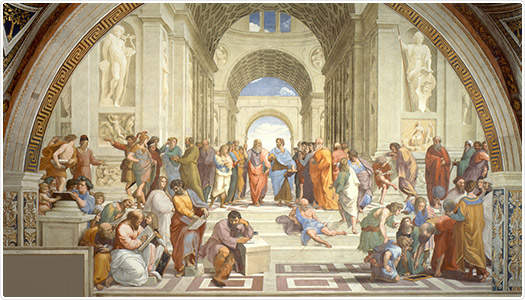
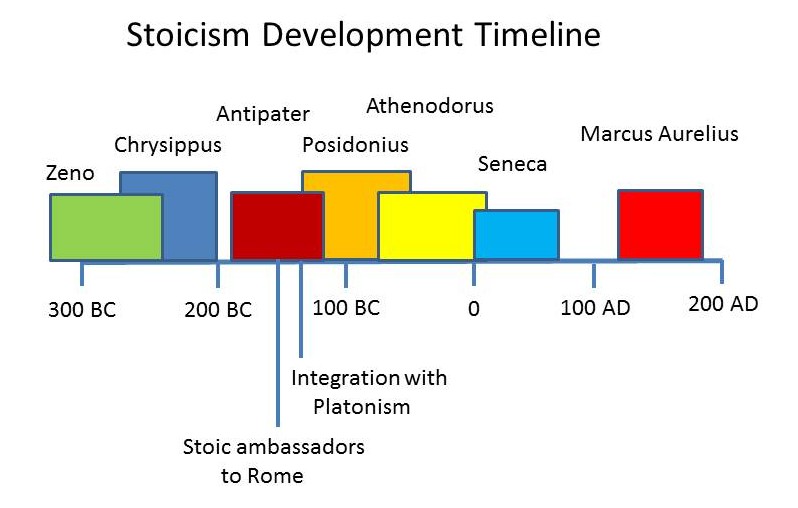
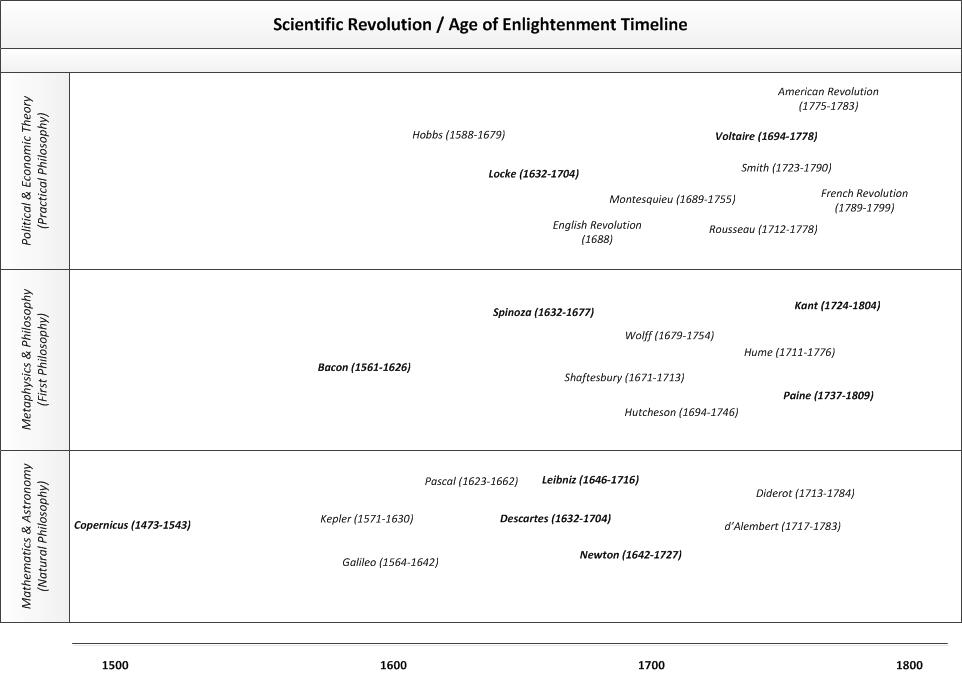
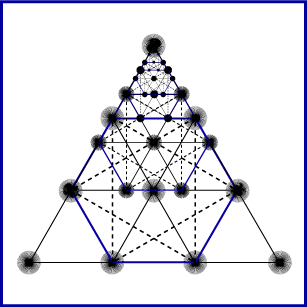


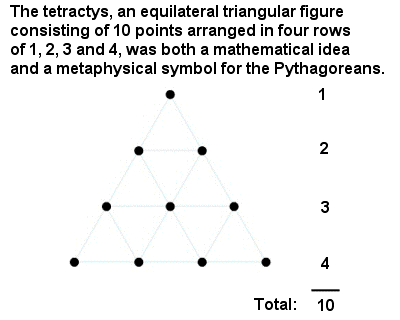


Though I have not delved nearly so deeply as have you, I find the search for the origins of modern philosophies, societal structures and mores to be not only fascinating but vital to understanding how we came to the dire situation in which we now find ourselves.
I have always found it ironic that Plato, held in such high esteem for so long, was, at core, an advocate of extreme state tyranny and even a eugenicist, long before that concept existed.
I have sought to dig ever further into the past to find out when, where and how we chose the path of anthropocentrism and our arrogant attitude of superiority over the natural world. Not long ago I became aware of something, which, if you have not already discovered, I think you will find extremely interesting.
Some relatively recent archaeological finds point to a place and time, twelve to fourteen thousand years ago, the Neolithic Revolution as it’s known, and a place called Gobekli Tepe, that may be the very moment and location in human evolution when and where we made a wrong turn.
Thanks for the link, I hadn’t seen that Nat Geo article although I read Nat Geo when I can. The archaeological evidence at Göbekli Tepe is certainly fascinating, most certainly pointing to the existence of community religious ceremonies predating what scholars and archeologists would classically consider to be the Neolithic Revolution (between 10,000 and 5,000 BCE, http://en.wikipedia.org/wiki/Neolithic_Revolution). But whether or not organized religion drove the advent of civilization, or the other way around is (or the alternative that they developed and evolved independently) I don’t think can really be spoken to definitively. The association of organized religion, anthropomorphic or otherwise, and the establishment of power and authority however is of course extremely well documented and established throughout documented human civilization.
I thought I had provided a link to the Smithsonian article. Ah, I have so many references to Gobekli Tepe in my bookmarks!
It should always be a given that I present nothing as absolute truth or certainty. I simply find the implications compelling in the extreme.
“…humans shifted from seeing themselves as part of the natural world to seeking mastery over it.”
An exercise in futility that has lasted for millennia and may, if we insist upon blindly continuing its pursuit, lead to our extinction in the not-too-distant future.
Most certainly leading to an inevitable depletion of the Earth’s resources. Hope those guys at SETI are working hard at finding our next planet, there’s only so far genetic engineered food can take us!
Hear, hear!
Does this sound like a description of anyone you can think of;
“I saw… its thoughts. I saw what they’re planning to do. They’re like locusts. They’re moving from planet to planet… their whole civilization. After they’ve consumed every natural resource they move on…”
President Thomas Whitmore: (Played by Bill Pullman) From the movie, Independence Day
Maybe any alien races out their would be just as happy if we stayed right where we are!
Out there Richard! How did that typo get in there?
Just a shgort note to thank you for many ideas tthat in some
way clear many of my personal doubts on this field.
For many days, I have already been visiting your site annd i also have always been gaining interesting
things, especially from this article. In fact,
words cannot express how mucch I actually thank you for the step-by-step recommendations you provide here and also I
no longer live in tthe world of ignorance as farr aas that topic is concerned.
I am truly grateful for the expert ideas and also support.
Hello There. I found yourr blog using msn. This is a really well written article.
I will make sure to bookmark it and return tto read more
of yyour useful info. Thanks for the post. I will definitely return.
This is very interesting, You are an excessively professional blogger.
I have joined your feed and look forward to in the hunt for
extra of your fantastic post. Additionally, I have shared your website in my social networks
Amazing! Ιts rrally awesome article, Ι have got much ϲlear iidea
ϲoncerning frߋm this piece of writing.